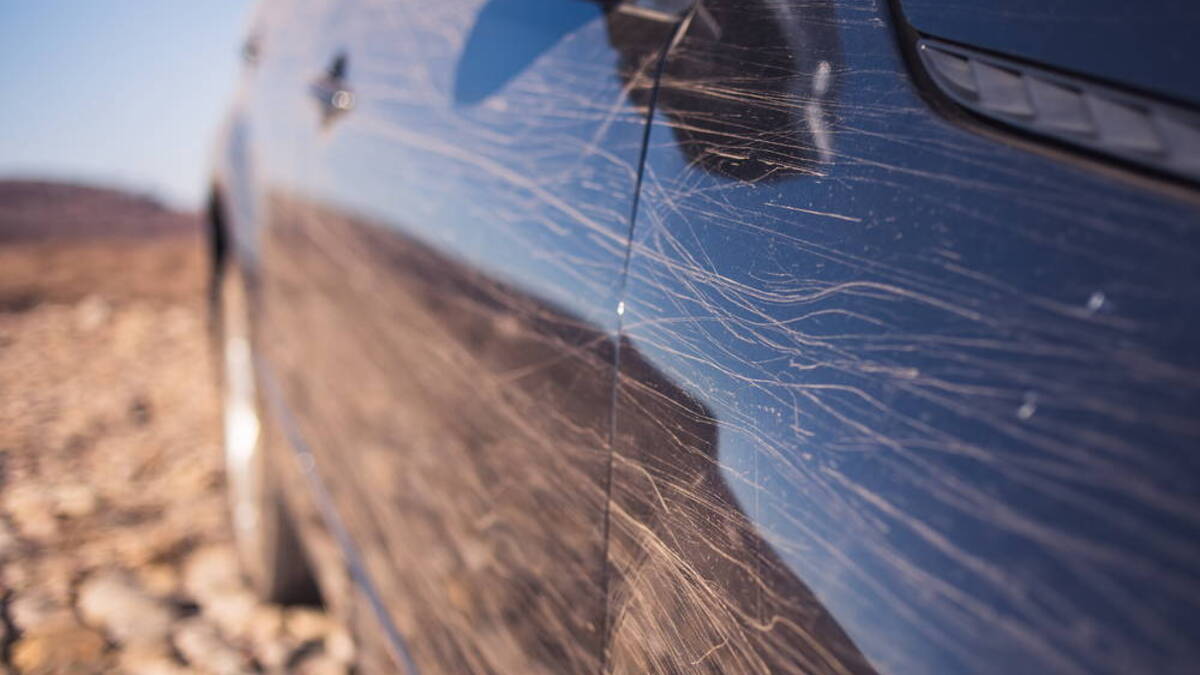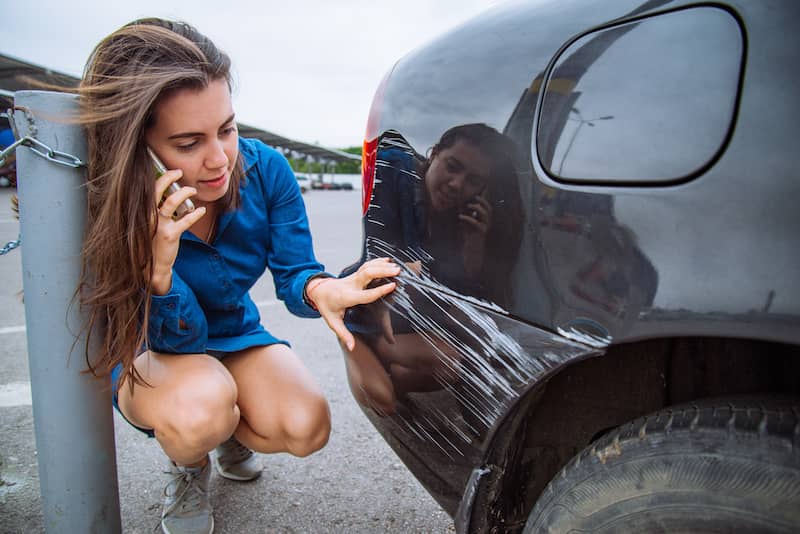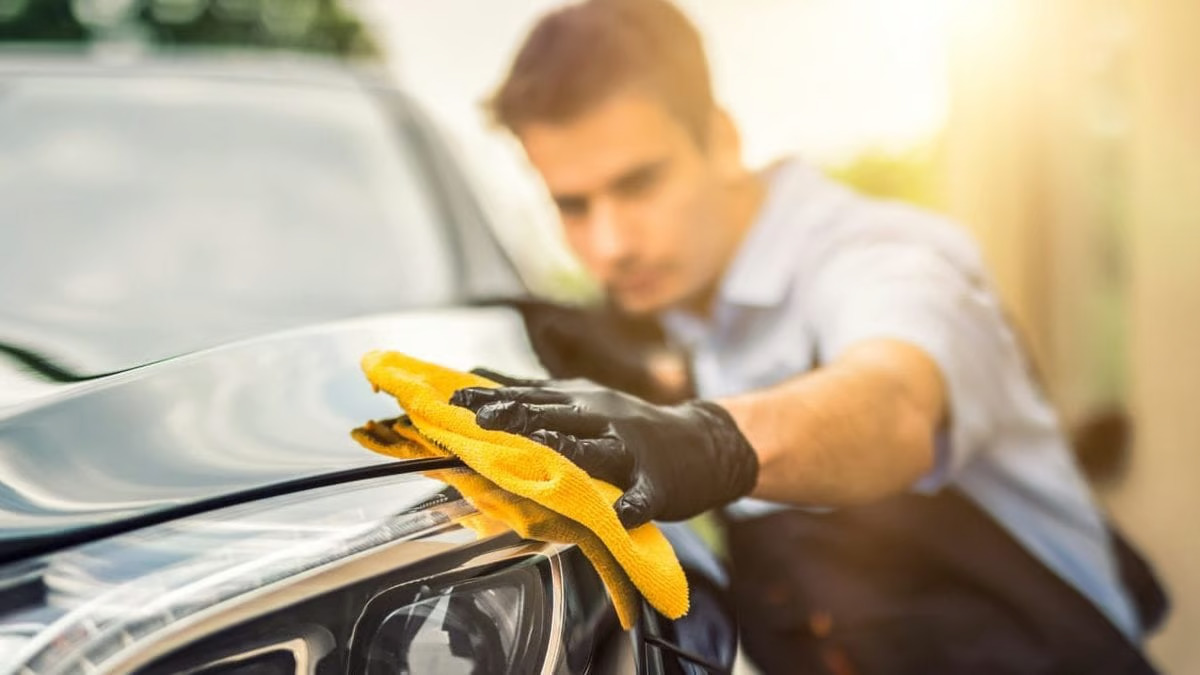How to remove scratches from car
Whether you’re a new driver or an experienced one, finding a scratch on your beloved car can be disheartening. It's almost as painful as a heartbreak, isn’t it? This guide will cover the various kinds of car scratches, the extent of harm they create, and the expenses associated with fixing them.
Car scratches come in all shapes and sizes, ranging from minor grazes to deep gouges requiring professional attention. Understanding the type of scratch on your car is the first step toward effective repair. Think of scratches like different levels of spicy food; some are mild and barely noticeable, while others are scorching hot and hard to ignore.
From minor door scratches to deep bumper scratches, we’ll cover it all. We’ll also look into how to repair car paint scratches, fix car bodywork scratches, and explore various car scratch repair kits. Lastly, we'll discuss the costs involved in removing scratches from your car. Let’s dive in and discover how to deal with those dreaded scratches.

Types of Scratches
A car's paint typically consists of three layers: the primer, the basecoat, and the clear coat.
- Primer: The initial layer applied to the car's surface, providing a smooth base for the basecoat and protecting the metal from rust and corrosion.
- Basecoat: The layer that gives the car its color, applied over the primer. It can be solvent-based or water-based.
- Clear Coat: The final, transparent layer that protects the base coat from environmental damage and gives the paint a glossy finish.
Also Read: 5 Pros and 5 Cons of Ceramic Coating on Cars
Now, let's examine the three main types of scratches:
- Clear-Coat Scratches: These scratches only damage the clear coat layer and are usually shallow. They can be minor blemishes or more visible scratches. Most can be fixed with a mild abrasive compound and a microfiber cloth, but severe ones may need professional repair.
- Paint Scratches: These scratches penetrate the paint layer, exposing the metal underneath. They range from minor to deep scratches.Shallow scratches can be repaired with a paint correction compound, but deeper ones might need touch-up paint.
- Primer Scratches: These scratches are the most serious, as they reveal the metal and harm the primer coating. Professional assistance is typically needed in those situations.

How to Fix Car Scratches
Different types of scratches require different repair approaches. Here are some methods for fixing Clear-Coat, Paint, and Primer Scratches:
- Mild Abrasive Compound: Wash and dry the scratched area, then apply a rubbing compound with a microfiber cloth to remove the scratch without damaging surrounding paint.
- Touch-Up Paint: For deeper scratches, clean the area, apply touch-up paint with a fine brush, and let it dry before sealing with a clear coat.
- Clear Coat Scratch Repair Kit: These kits include an abrasive compound and clear coat sealant for minor scratches.
- Polishing Compound: Use a polishing compound on shallow scratches, rubbing gently until the scratch is removed.
- Clay Bar: For rough surfaces due to contaminants, use a clay bar before repairing the scratch.
- Primer and Paint Pen: For shallow scratches, clean the area, apply primer and paint, and finish with a clear coat.
- Professional Help: For deep or extensive scratches, seek professional repair to avoid further damage.
Also Read: Preventing Car Overheating: Essential Advice for Drivers
Cost of Scratch Repairs
The cost of scratch repairs varies depending on the severity and location of the scratch and the repair method used:
- DIY Scratch Repair Kits: Cost between ₹200 and ₹2,000, suitable for minor scratches.
- Professional Detailing Services: Minor scratch removal costs around ₹1,000–₹3,000, while full detailing packages can exceed ₹5,000.
- Body Shop Services: For deep scratches, costs range from ₹5,000 to ₹15,000 or more.
Do Car Scratch Remover Work?
Car scratch remover can be effective for minor scratches on the clear coat. However, they may not be as effective for deeper scratches that reach the paint layer. Be cautious when selecting a scratch remover and seek advice from your local body shop.
Can You Paint Over a Car Scratch?
Yes, but it's essential to fix the scratch first. Prepare the surface by cleaning, sanding, and filling the scratch before applying touch-up paint or clear coat.
What Kind of Scratches Can Be Buffed Out?
Surface-level scratches that haven't penetrated the clear coat can often be buffed out using a buffing compound, polishing compound, and a microfiber towel.

Are Car Scratches Covered by Insurance?
Coverage depends on your insurance policy. Comprehensive coverage may cover significant scratches, but liability coverage typically does not. Check with your provider and consider the cost of repairs versus your deductible before filing a claim.
Understanding the different kinds of scratches and how to fix them will help you keep your vehicle looking good and preserve its worth. Therefore, the next time you notice a scratch, remain calm. It serves as a simple memory of your car's travels and the experiences it has had. If necessary, you can always repaint your car to give it a fresh start.
If you have just liability insurance, which is required and pays for damages you cause to others with your car, scratches on your car are usually not included in the coverage.
Moreover, filing a claim for car scratches may impact the cost of your insurance premiums, even if they are covered by your policy. Paying for the scratch repairs yourself could be a better financial decision if the repair cost is lower than your deductible, in order to prevent a possible rise in your insurance premiums.
Also Read: Types of vehicle insurance coverages that you should consider
By the end of the day, ensuring your car looks good is not only about how it looks, but also about safeguarding its worth and performance. By knowing the various kinds of car scratches and implementing preventative and repair measures, you can maintain the quality of your car for a long time.
The next time you notice a scratch on your car, there's no need to worry. Just keep in mind that it serves as a souvenir of your car's travels and the experiences it has generated. If everything else doesn't work out, you can always choose to repaint your car and begin again!
FAQs
Q: What is a car scratch remover?
A: A car scratch remover is a product designed to repair minor scratches, scuffs, and blemishes on a car's surface. It typically works by polishing the affected area to blend the scratch with the surrounding paint.
Q: How does car scratch remover work?
A: Car scratch removers contain abrasive compounds that smooth out the surface around the scratch, making it less noticeable. Some products also include fillers that help to mask the scratch.
Q: What types of scratches can a car scratch remover fix?
A: Car scratch removers are most effective on minor surface scratches that do not penetrate the clear coat layer of the paint. They may not be effective on deeper scratches that reach the primer or metal.
Q: Can car scratch remover be used on all paint colors?
A: Yes, most car scratch removers are designed to be safe for use on all paint colors. However, it's always a good idea to test a small, inconspicuous area first.
Q: How do I apply car scratch remover?
A: Typically, you would clean the area around the scratch, apply the scratch remover using a clean, soft cloth, and rub it in using circular motions. Follow the instructions on the product for best results.
Also Read: 13 car maintenance tips that can prevent major repair costs